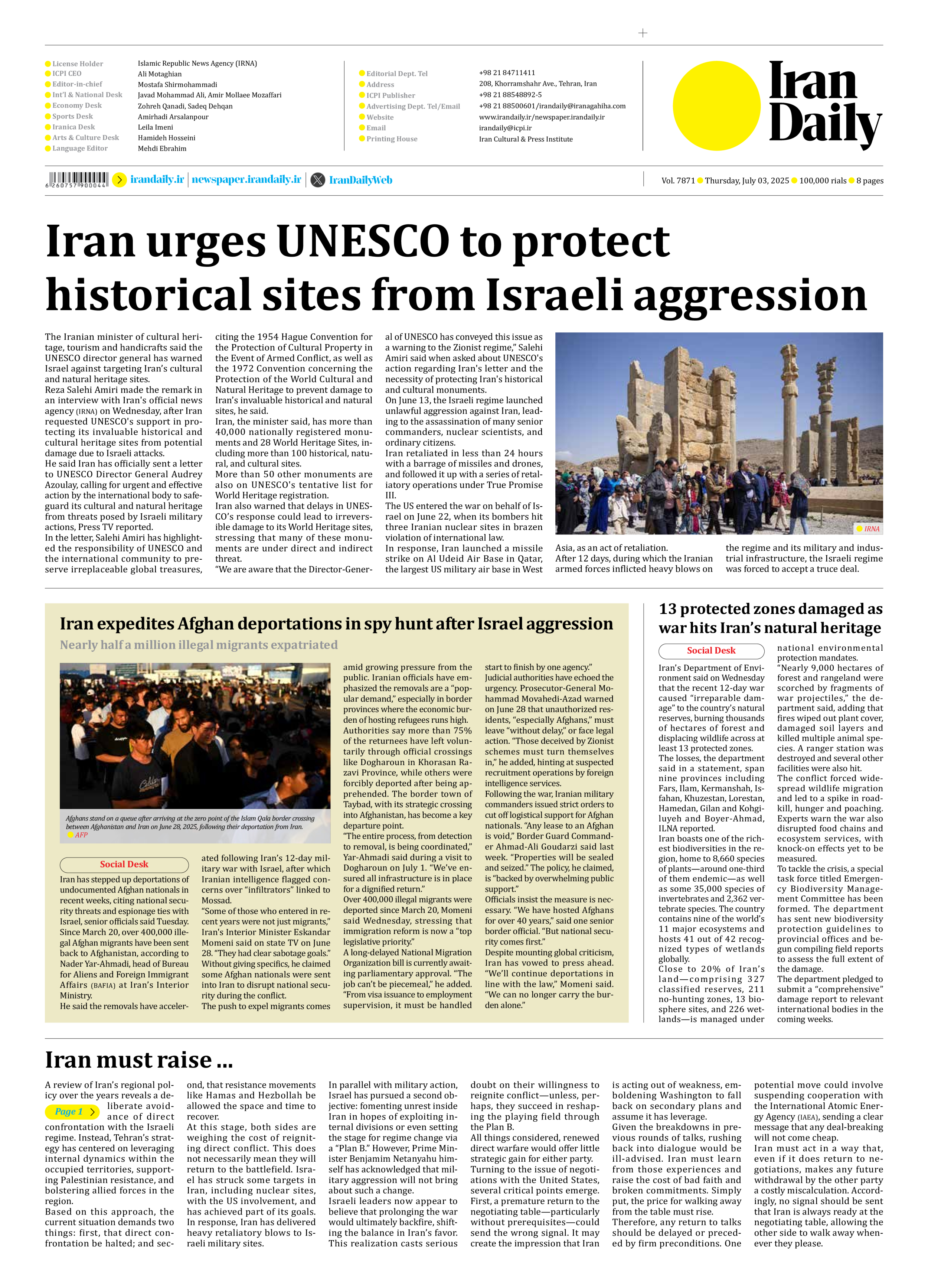
Iran must raise ...
Page 1
A review of Iran’s regional policy over the years reveals a deliberate avoidance of direct confrontation with the Israeli regime. Instead, Tehran’s strategy has centered on leveraging internal dynamics within the occupied territories, supporting Palestinian resistance, and bolstering allied forces in the region.
Based on this approach, the current situation demands two things: first, that direct confrontation be halted; and second, that resistance movements like Hamas and Hezbollah be allowed the space and time to recover.
At this stage, both sides are weighing the cost of reigniting direct conflict. This does not necessarily mean they will return to the battlefield. Israel has struck some targets in Iran, including nuclear sites, with the US involvement, and has achieved part of its goals. In response, Iran has delivered heavy retaliatory blows to Israeli military sites.
In parallel with military action, Israel has pursued a second objective: fomenting unrest inside Iran in hopes of exploiting internal divisions or even setting the stage for regime change via a “Plan B.” However, Prime Minister Benjamim Netanyahu himself has acknowledged that military aggression will not bring about such a change.
Israeli leaders now appear to believe that prolonging the war would ultimately backfire, shifting the balance in Iran’s favor. This realization casts serious doubt on their willingness to reignite conflict—unless, perhaps, they succeed in reshaping the playing field through the Plan B.
All things considered, renewed direct warfare would offer little strategic gain for either party.
Turning to the issue of negotiations with the United States, several critical points emerge. First, a premature return to the negotiating table—particularly without prerequisites—could send the wrong signal. It may create the impression that Iran is acting out of weakness, emboldening Washington to fall back on secondary plans and assume it has leverage.
Given the breakdowns in previous rounds of talks, rushing back into dialogue would be ill-advised. Iran must learn from those experiences and raise the cost of bad faith and broken commitments. Simply put, the price for walking away from the table must rise.
Therefore, any return to talks should be delayed or preceded by firm preconditions. One potential move could involve suspending cooperation with the International Atomic Energy Agency (IAEA), sending a clear message that any deal-breaking will not come cheap.
Iran must act in a way that, even if it does return to negotiations, makes any future withdrawal by the other party a costly miscalculation. Accordingly, no signal should be sent that Iran is always ready at the negotiating table, allowing the other side to walk away whenever they please.







